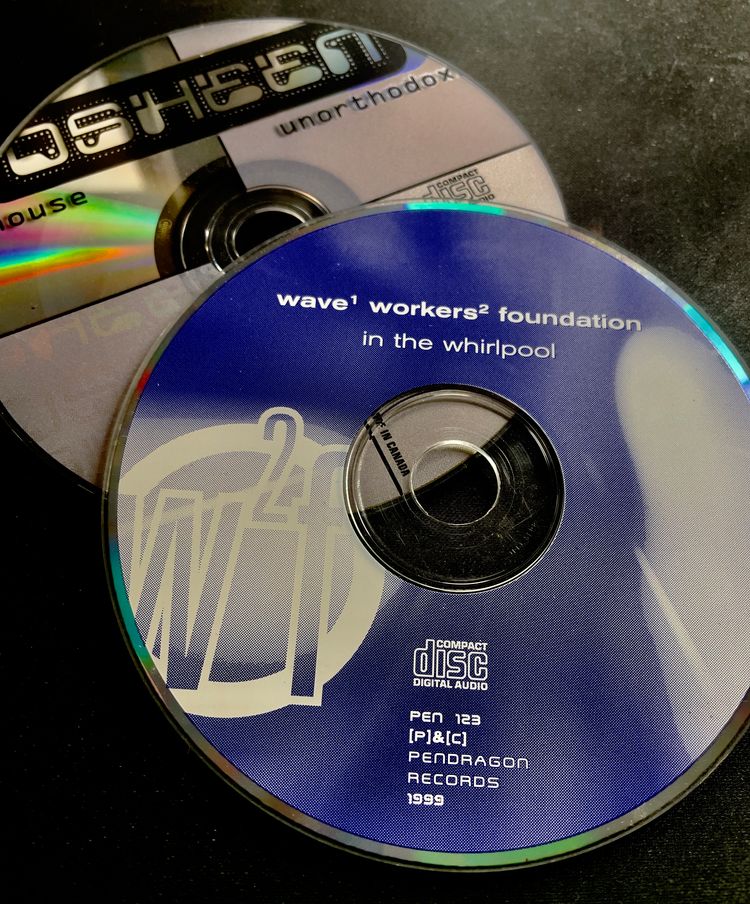Obsession
Why do obsessions exist and are they healthy for a person or not? What separates an obsession from a necessity in someone's life?
I was thinking about these two questions after reflecting back upon my experience of not having my laptop for almost a week. In the previous post, I was writing about how humans have become attached to technology like it was a friend or person in their life who had significance to them. But then I started thinking about today how email isn't just a tool anymore for people, or how cellphones aren't just a convenience. People have started obsessing about these things, amongst other things.
One of the first things I noticed when I moved to Syracuse and went into the theatre department was how frequently the students whipped out their cellphones while walking out of a classroom. Worse was how people called people on their cells even though they only had a five-ten minute break. Are their people in the world that are that important that we have to talk to them at any given chance? During the major wars of the century, people back home could wait weeks to receive a letter from the soldiers abroad. They didn't go insane because it had been less than an hour since they had heard from them. I know we're a much more connected in our world now, but these social networks have become extreme to the point where we're at a loss if we don't have them.
I've seen several people get rather annoyed when looking down at their phone and they had a missed call, or they didn't have any calls or texts, or even more frustrating was not being able to get a decent connection while in the basement of a concrete building. I've seen people check their phones every five or ten minutes for no apparent reason. We all have our subtle body gestures when we're uncomfortable or bored, but I guess that has expanded into looking at our cellphone in hopes of escape.
The same seems to be true with email, with all the various software notifying you instantly of new messages. It doesn't matter if the messages are important or not, most people will check them to just delete them (if they aren't important) or read them. The annoying thing for me is how people will take the time out of their day to read a message at that instant, but can't take the time to reply to it then. It's kind of a double standard - your emails are important when addressed to me, but my time is more important than sending an email back to you. Knowing that someone could respond that moment but doesn't is a frustrating feeling for a lot of people.
This has even become worse in the world of instant messages. Even though people may carry on a handful of conversations, everyone has the same expectation of being responded to quickly. People actually get annoyed at me because sometimes I'll use my cellphone to communicate with them and it's slower compared to when I'm sitting at a computer. It's only a delay of maybe 10-15 seconds, but it's still the end of the world. I suppose it's a carry-over from the real world. It's a problem with me, because instead of saying "uh" or some other filler words, I'll just leave pauses while I'm thinking or looking for something. A lot of people will think I was disconnected from the phone. But it's rather unfair to give the same sort of expectations to people using the IM clients. People use the clients as secondary uses of their computer. They're surfing the web, writing a paper, listening to music, etc. They don't turn on their computer to primarily chat, so why should they be expected to respond immediately if that's not their sole purpose of actually being online? I'm going to have to start putting messages in saying "Chatting is not a priority at the moment" and maybe people will understand better.
When we use computers, are we using them as a tool or have we been trained that we have to use them, similar to what happened with television? First, television was an entertainment centre for the family, but as it exploded in popularity, it suddenly become odd if a family didn't have a tv, or two TVs for that matter. It become a necessity, even though there are better things in the world than a television. I'm thinking that trend is continuing with computing, and by extension, gaming, cellphones, PDAs, etc. It's not that we need to use a computer at home for stuff, it's more that we're accustomed to having them around us everywhere. Instead of picking up a book to read, we're more likely to rely on technology to entertain us rather than our own brains.
I think of tools as something that helps us in accomplishing a task that normally we couldn't do on our own. For example, a hammer allows us to bang in a nail - something we couldn't do with our bare hands, and something that's easier than using a rock. When we go to a hardware store, there are a lot of variety of hammers to choose from, but each hammer has a specific purpose where it's better suited. At a computer store, however, every computer isn't fine-tuned for certain applications. There's no true home computer to buy (that allows you to surf the web, email, word/office applications, basic games, etc). Instead, people are talked into having to buy the 80 GB hard drive, 3.0 Ghz and 1 gig of RAM machines. That sort of power is not needed for basic things, but that's all that exists on the store shelves. Humans have this obsession over "newer is better" which was probably true in other times, but I don't think it's necessary anymore.
And a necessity is just that: something that you need to survive. We need to eat. We need to drink. We don't need to email daily.





